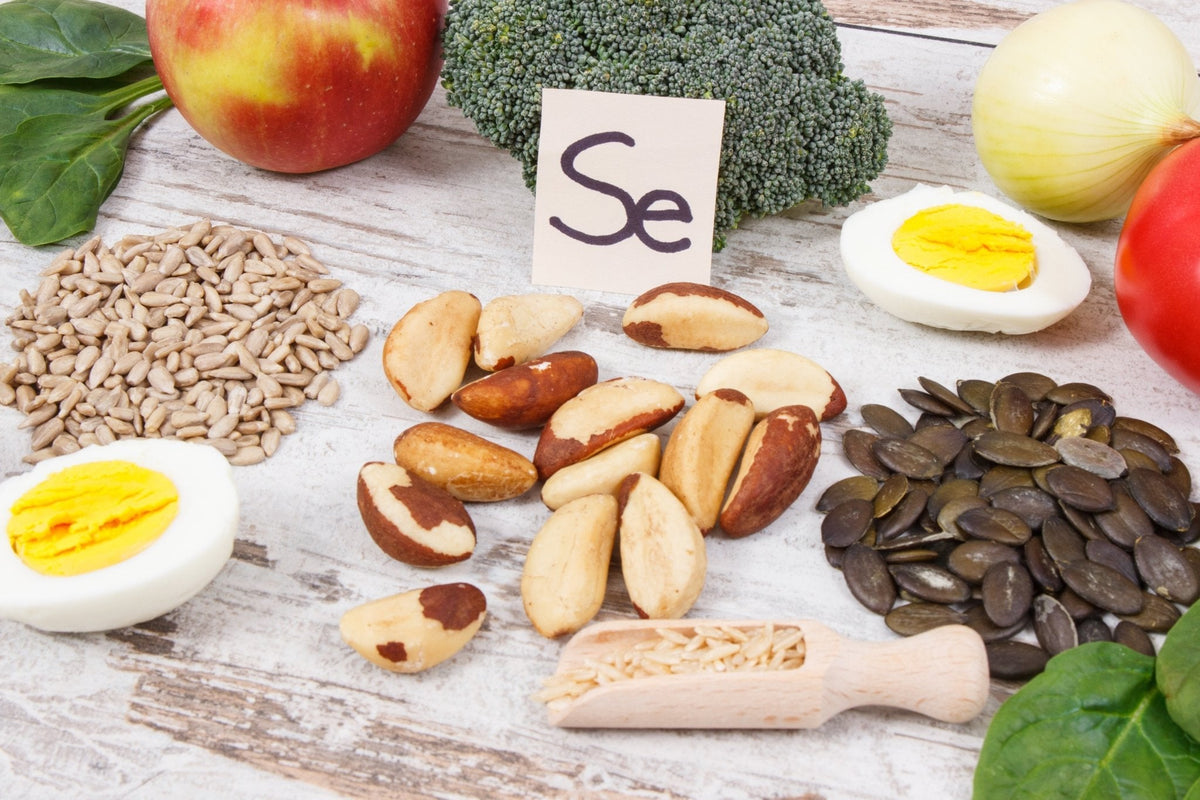Selenium is an important trace mineral found naturally in the soil and in some foods.
It has numerous health benefits for the body but, due to the poor mineral content of our soil, most people don’t get the amount of selenium they need for optimal health.
Liver Health
Trace amounts of selenium are required in order for the body to form both glutathione peroxidase and thioredoxin reductase.
These two enzymes are both needed to indirectly reduce certain oxidized molecules. Because oxidation is linked to liver damage, antioxidants such as selenium are vital for preserving liver tissue.
A study published in the journal Acta Biochemical Polonica showed that patients with chronic Hepatitis B or C infection or with alcoholic, autoimmune or cryptogenic chronic liver disease had significantly less selenium in their blood than healthy people.
This finding led researchers to suggest that low selenium could be linked to a higher rate of oxidative damage to liver cells.
Selenium is also needed for tissue elasticity in the liver, which is particularly important for those who have chronic liver disease.
Many diseases of the liver can lead to rigidity in the tissues and local blood vessels. Selenium helps to preserve and retain elasticity while also supporting healthy hepatic circulation.
Antioxidant
As a potent antioxidant, selenium helps to slow the aging process by reducing the damage caused by free radicals (1).
Selenium works alongside other antioxidants such as vitamin E to help the body fight oxidative stress and protect cells.
Selenium is also an essential component of glutathione peroxidase, an important enzyme for processes that protect cell membranes.
In this way, selenium helps to defend cells and DNA from the damaging effects of mutation that can lead to diseases such as cancer.
Immune System Booster
Selenium aids in the proper functioning of the immune system and may even play a part in preventing the development of viruses, including HIV.
One study involving patients with HIV showed that supplementation with selenium helped to slow down the progression of the disease into AIDS (2).
Heart Health
Poor levels of selenium in the body have been associated with an increased risk of cardiovascular disease. Supplementation with selenium or eating selenium-rich foods may be able to help prevent coronary heart disease.
Because selenium helps to reduce inflammation and free radical oxidative stress while increasing blood flow, it may be an important defense nutrient for the heart.
Research suggests that lower intake of selenium concentrations is associated with reduced coronary heart disease risk.
Reproductive Health
Selenium is required for healthy sperm motility and improved blood flow, which are key to conception and fertility.
Research suggests that that sperm selenium concentrations that are either too high or too low can have a negative influence on the number of sperm, which means that it’s important to meet the recommended daily intake for selenium without exceeding it.
As a trace mineral, we only need a small amount of selenium. Fortunately, the body is usually able to flush out any excess selenium.
The Bottom Line
How is your liver health? In our modern lives, we face exposure to toxins in the air, our food, the medicines we take, and much more.
By using herbal supplements and trace minerals, you can give your liver the raw materials it needs to process those toxins.
Our Liver One supplement contains a variety of liver-supportive ingredients that have been scientifically proven to support good liver health.
A healthy, functioning liver is an essential part of good health. Taking a good liver support supplement will help your energy levels, immunity, digestion, and overall wellbeing.
Here are a few key reasons why Liver One is so effective:
- A unique blend of 10 liver-supportive ingredients, including:
- European Milk Thistle Extract, Artichoke Leaf Extract, Turmeric Root Extract, Dandelion Root Extract, Beet Root Extract, Choline, Selenium, and Molybdenum Glycinate.
- 60 easy-to-swallow capsules per bottle (enough for a whole month).
- Free of nuts, dairy, gluten. Non-GMO and vegan. Made in the USA.
You can read more about Liver One here.

